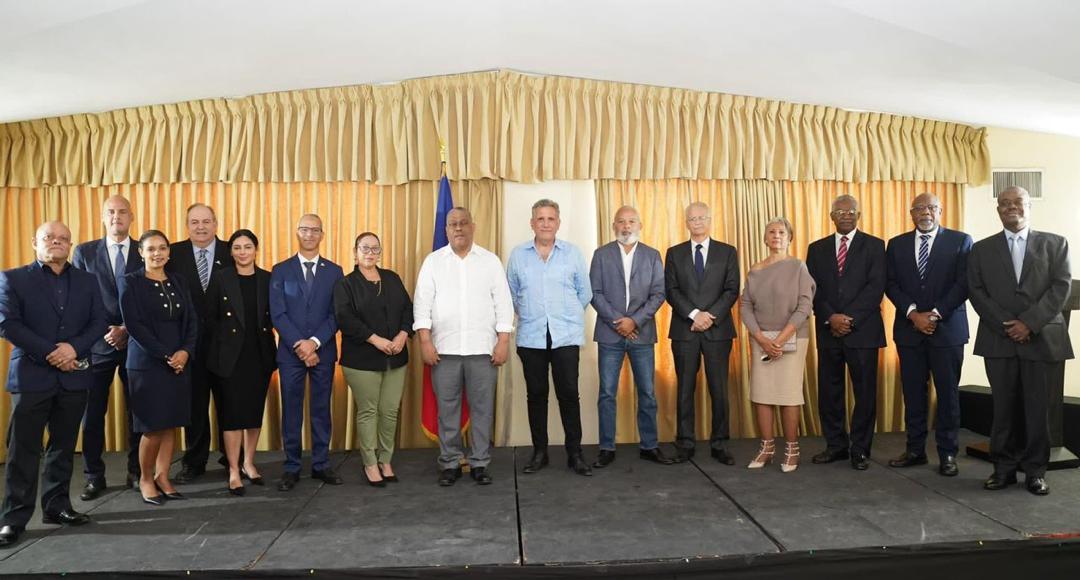Prime Minister Gary Conille’s Breakfast Meeting with the Private Sector
- June 7, 2024
- Posted by: AmCham Haiti
- Category: News

On June 7, 2004, the President of AmCham Haiti, Mr. Jean-Philippe Boisson, along with Mrs. Deborah Stark, 2nd Vice-President, and Mr. Clement Belizaire, 1st Vice-President, attended a breakfast meeting organized by the new Prime Minister, Dr. Gary Conille, with representatives from the Private Sector. The meeting, held at Hôtel Montana, included participants from various organizations such as ADIH, ATH, APB, CCIO, Chambre Canado-Haïtienne, Chambre Franco-Haïtienne, Chambre des Métiers, and the Chambre d’Arbitrage.
Prime Minister Conille began the meeting by sharing his experiences visiting areas impacted by gang activity and camps where displaced populations are residing. He acknowledged the severe challenges facing Haiti, stating that the situation is more dire than it was after the 2010 earthquake. Despite this, he expressed a belief that actionable steps can be taken to address these issues. The purpose of the meeting, however, was to hear directly from the Private Sector about the challenges they face and the solutions they propose. He emphasized the importance of the Private Sector’s active participation in moving forward and expressed his intention to establish regular communication with the sector for real-time information exchange.
In response, Mr. Boisson thanked the Prime Minister for his candid introduction and welcomed him to Haiti. He stressed that while the challenges are numerous, the Prime Minister’s tenure may be short, so it is crucial to remain focused on clearly defined objectives. Mr. Boisson identified security as a critical priority and noted that constitutional reform is essential for ensuring that future elections produce a president capable of delivering results. He also addressed economic concerns, urging the government to create a supportive framework for businesses, highlighting the need for the state to act as a partner rather than an adversary. Additionally, he recommended a revision of the Police Corps, pointing out that inadequate compensation makes officers vulnerable to corruption.
Various other representatives from the Private Sector raised additional key issues, including:
- The need to support the economic recovery by aiding surviving companies.
- The importance of government programs that create mass employment, such as garbage collection and street cleaning, would also send positive signals.
- The potential of the tourism sector to contribute significantly to the economy.
- The necessity of supporting local production sectors and providing investment incentives.
- The urgent need for the government to demonstrate its commitment to combating corruption.
- Consideration of the current legal framework, noting that actions by this government need to be carefully measured, differing from the Latortue Government period (2004-2006).
- The need to fulfill the promise of open communication with the Private Sector.
The Prime Minister acknowledged the input, took extensive notes, and reiterated the need to focus on key initiatives to achieve tangible results. He also expressed a commitment to open, transparent, and continuous communication, emphasizing the importance of involving the Diaspora in the nation’s development. He concluded by stating that while security issues are pressing, action must begin immediately, particularly with a focus on the humanitarian aspects of the crisis.
The meeting concluded with a photograph of the Prime Minister and the association leaders in attendance.


